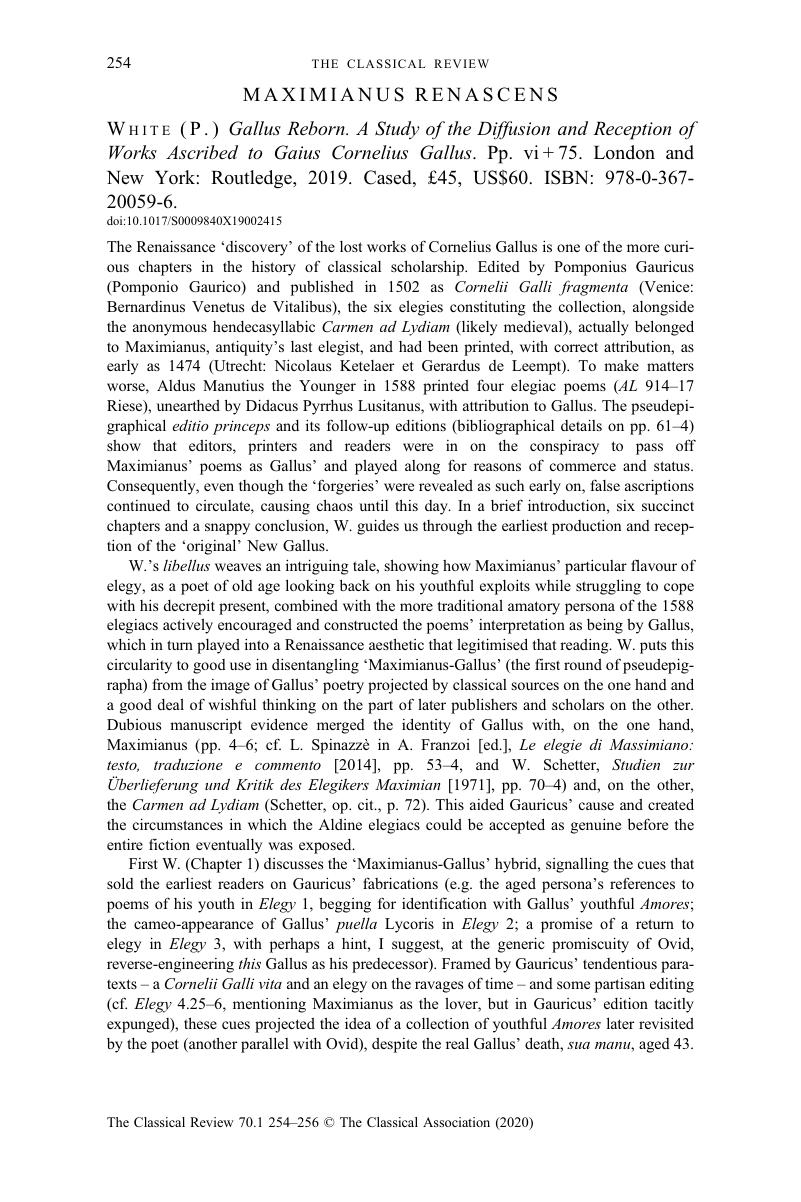No CrossRef data available.
Published online by Cambridge University Press: 13 January 2020

1 The argument that the forger imitated Lotichius (and not vice versa) will not convince everyone; AL 914 reads as a pastiche of classical sources. The following case cited by W. (p. 46; my emphasis, quotation truncated) seems persuasive: AL 914.73–4: Cur mihi non illisnasci, mea vita, diebus | Contigit? ~ Lotichius, Elegiarum liber II (Lyon: Jean de Tournes, 1553), 2.55–6: Me miserum, quod non aliomihitemporenasci | Contigit! ~ Ov. Met. 10.334 (Myrrha): me miseram, quod non nasci mihi contigit illic. Communal use of Ovid seems precluded by the emphasis on days past in Lotichius and AL 914. The wish to be born in an earlier age, however, is as old as Hesiod (W&D 174–7), a passage any Classical or Renaissance poet would know. Less convincing is W.’s comparison (p. 48 n. 14; my emphasis, quotation truncated) of the carpe diem-motif in Lotichius 2.2.70: Ducere, clam tacito mors venit atra pede ~ AL 914.100: Dum loquimur, nox est mortis et umbra subit, where Lotichius’ conventional ‘black death’ (see Maltby on Tib. 1.3.4–5) allegedly inspired AL 914's ‘night and shadow of death’. Cf. rather Psalm 23.4/Vulgate 22.4: nam etsi ambulavero in medio umbrae mortis for a linguistic, if not thematic, parallel; umbra subit occurs in Ov. Met. 11.61 (Orpheus and Eurydice), though this (simultaneously, as two-tier allusion? Forgers would also know of Gallus’ association with Orpheus) may be a nod at the end of Gallus’ bucolic life (and symbolical death?) in Virg. Ecl. 10 (cf. the triple umbrae of lines 75–6). Gloominess, night and death are associated conceptually, but there is little lexical basis for an intertextual connection.